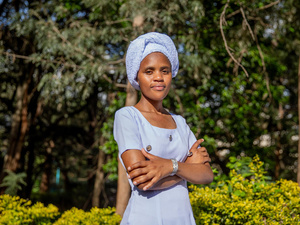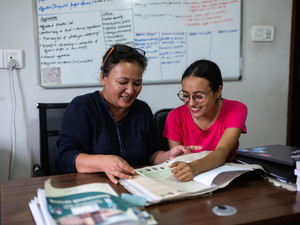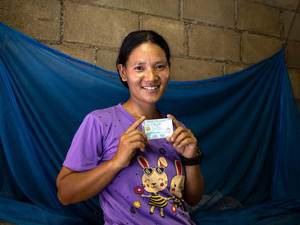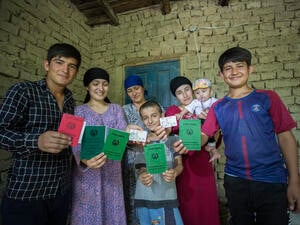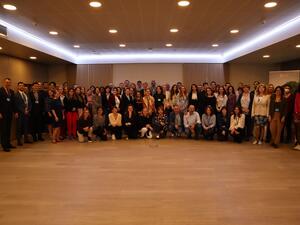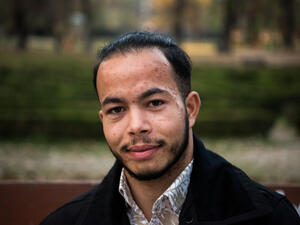UNHCR drives effort to reduce statelessness in south-east Europe
UNHCR drives effort to reduce statelessness in south-east Europe

Young forcibly displaced Roma from south-east Europe. Many have no citizenship which affects their daily lives.
ZAGREB, Croatia, October 27 (UNHCR) - The UN refugee agency on Thursday encouraged countries in south-east Europe to accede to a key UN convention on statelessness and help improve the lives of thousands of ethnic Roma.
"Statelessness and its prevention are complex issues that can only be effectively and comprehensively addressed by states in a manner consistent with their obligations arising from human rights law and statelessness treaties," Assistant High Commissioner for Operations Janet Lim told government officials and aid workers at a conference in Zagreb on civil documentation and birth registration.
"For stateless persons to be properly integrated into society and protected from discrimination and abuse, states need to constantly review and revisit their laws, policies and political attitudes," Lim told some 80 participants at the meeting. "Communities can be built in two ways: by inviting people in and by keeping others out," she added.
Lim also said the discussions at the meeting in Zagreb would help to "develop more targeted responses to the challenges of implementing the 'promises' that have been agreed upon vis-à-vis the Roma and other marginalized communities."
Two countries in the region have to date acceded to the 1961 Convention on the Reduction of Statelessness, Bosnia and Herzegovina and Croatia, which became the 40th state party to the legislation in September. UNHCR in August launched a major campaign to encourage more countries to accede to the Convention during its 50th anniversary.
The 1961 Convention provides principles and a legal framework to prevent statelessness. UNHCR, in addition to its refugee mandate, has been tasked with identifying, preventing and reducing the incidence of statelessness.
The plight of up to 12 million stateless people around the world has received limited attention in recent years. Europe is home to almost 600,000 of them - largely a legacy of the break-up of the Soviet Union and former Yugoslavia two decades ago.
Many are Roma from south-east European countries that were created from the former Yugoslavia. Some have moved to other parts of Europe, where they can have problems proving their nationality and legal right to remain.
UNHCR estimates that in south-east Europe itself, more than 18,000 people are stateless or at risk of statelessness. However, there is no reliable data on the size of the Roma population affected by statelessness.
Roma primarily face statelessness due to lack of birth registration and documentation, following the dissolution of Yugoslavia. These are the basic proofs of citizenship without which a person can be at risk of statelessness.
Because of their marginalization and discriminatory practices in the registration process that can lead to mistrust, Roma are often not fully aware of the importance of civil registration and documentation to access basic civil, political, social and economic rights and public services. Many children are not registered at birth, placing them at risk of becoming stateless.
The conference in Zagreb was hosted by the Croatian government and organized by UNHCR and the Organization for Cooperation and Security in Europe. A ministerial-level conference to be hosted by UNHCR in Geneva in December will include a treaty event for states that wish to deposit their instruments of accession to the UN refugee and/or statelessness conventions.

